How to make chicken Karaage with Tim Anderson
Find out how to make the ultimate chicken Karaage, aka Japanese chicken thighs. The perfect sharing food.
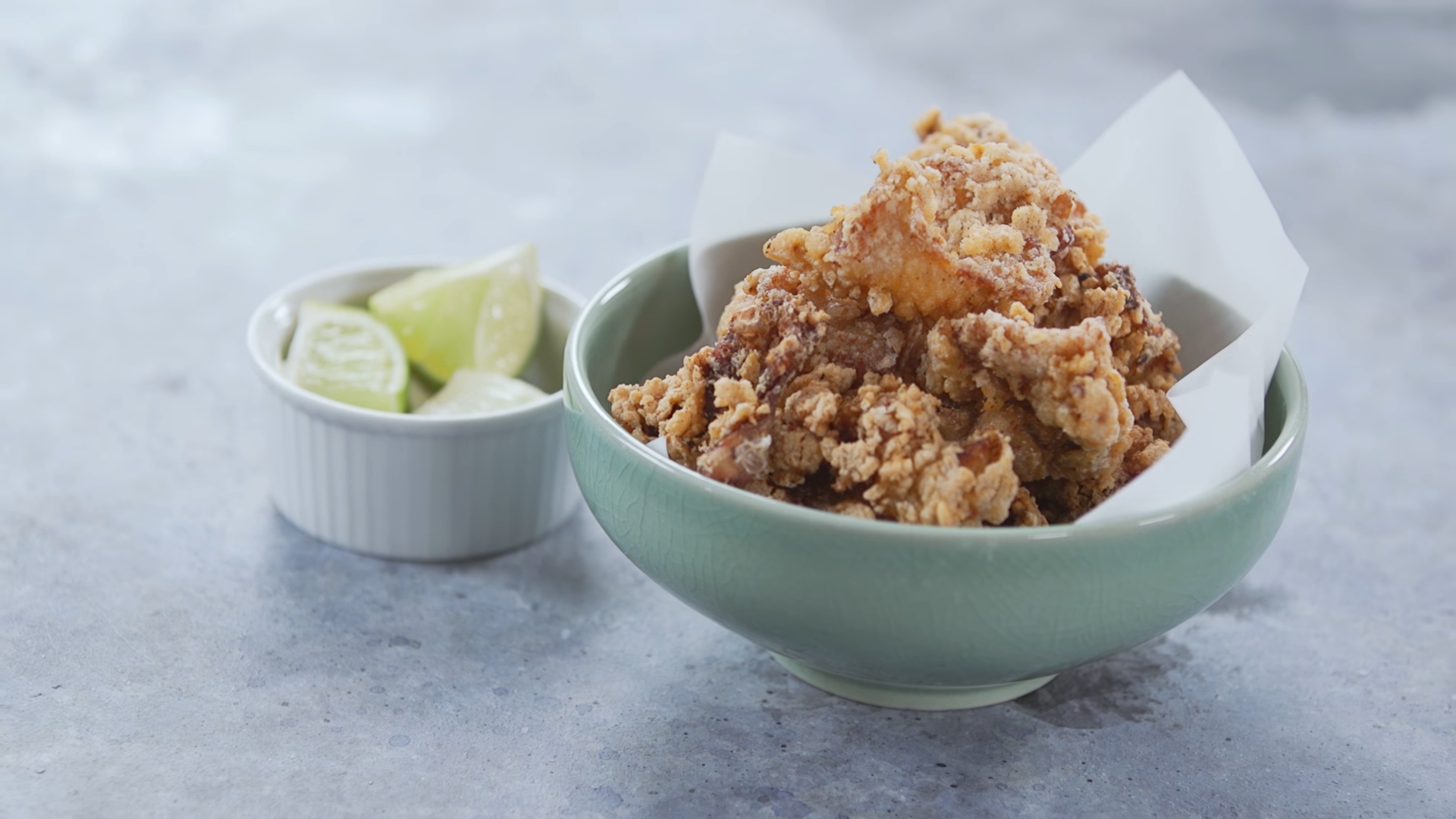

Rosie Conroy
This chicken Karaage how-to recipe comes from MasterChef winner Tim Anderson. They are what Tim describes as Japanese soul food, made with crisp, seasoned batter and succulent chicken thighs.
One of our favourite Japanese recipes and the perfect sharing food, chicken Karaage is an easy recipe to try at home. At Tim Anderson's restaurant, Nanban in London, they serve chicken Karaage simply with lime juice, to add a little freshness without overpowering the flavour of the marinade itself. Tim's recipe serves four people, so scale up or down if you want more or less.
Most of the ingredients you can buy in your local chain supermarkets except for two staple components of this dish: mirin and dashi powder, which you will have to look in Japanese food stores or online for before making.
Preparation: The key to successful chicken Karaage is making sure you marinade your chicken thighs for as long as possible before. We suggest marinating them up to 1 hour to 48 hours before making. The longer you marinate, the more flavour your chicken will have.
We also recommend using a deep big pot or a deep fat fryer if you have one to deep fry your chicken karaage. The sides of your pot should come up much higher than the level of your oil, so if it does bubble up it shouldn't overflow.
It is also important to have a cooking thermometer so you can make sure your oil reaches an exact temperature of 160°C, as this will make sure your Karaage has a delicious golden brown crust and the chicken is super juicy.
Watch Tim Anderson make these succulent, Japanese-inspired chicken thighs
Ingredients:
GoodtoKnow Newsletter
Parenting advice, hot topics, best buys and family finance tips delivered straight to your inbox.
- 4 chicken thighs, boneless and skin on
- oil, for deep-frying100ml sake
For the marinade:
- 3tbsp mirin
- 3tbsp vinegar
- 3tbsp lime juice
- 2tbsp sriracha or similar hot chilli sauce
- 2tbsp soy sauce
- 1tbsp sesame oil
- 10 cloves garlic
- 4 shallots or 2 banana shallots
- 15g ginger (peeled weight), thinly sliced
- ½ tsp salt
- ¼ tsp pepper
For the seasoned flour (optional):
- 250g cornflour
- 1 tsp pepper
- 1 tsp salt
- 1 tsp sesame seeds
- ½ tsp dashi powder
- ¼ tsp chilli powder
- ¼ tsp dried ginger
How to make chicken Karaage
Step 1
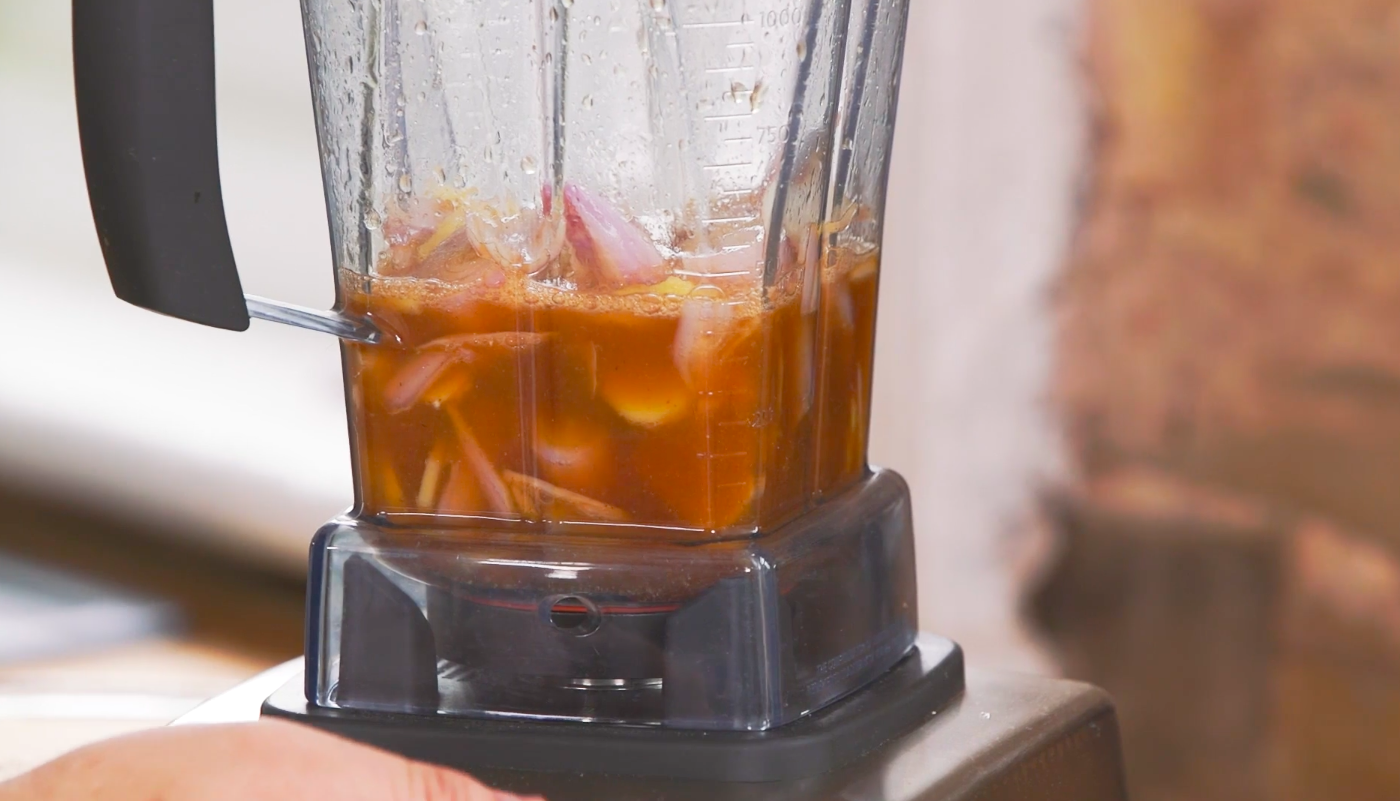
For the marinade, whizz all the ingredients together in a food processor until no big chunks remain (it doesn’t have to be perfectly smooth).
Step 2
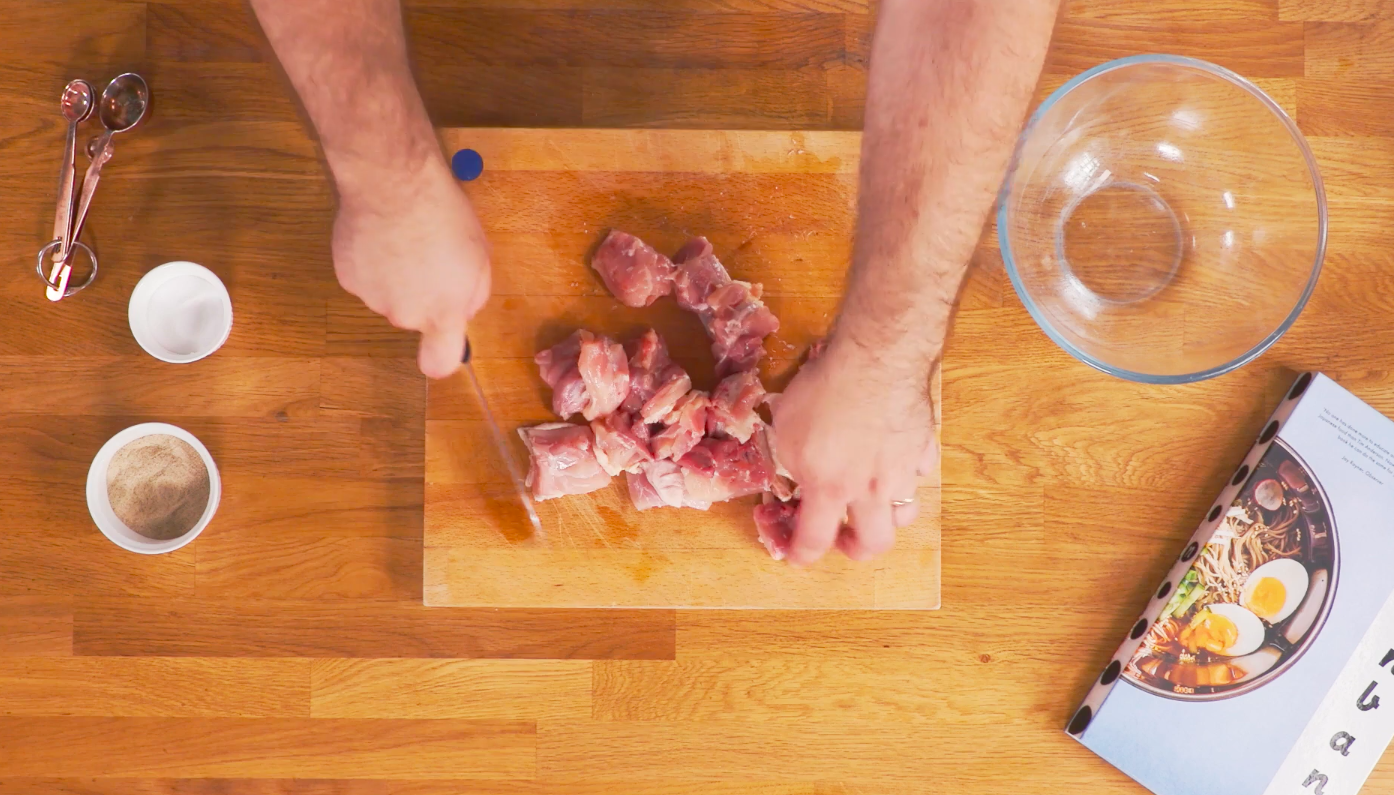
Cut the chicken thighs into pieces no bigger than about 3cm at their thickest point – most thighs will yield 4 pieces, but you should get 5 or 6 out of bigger ones. The main thing to bear in mind is that they need to cook quickly, before the crust begins to burn. Basically, you should err on the side of small.
Step 3
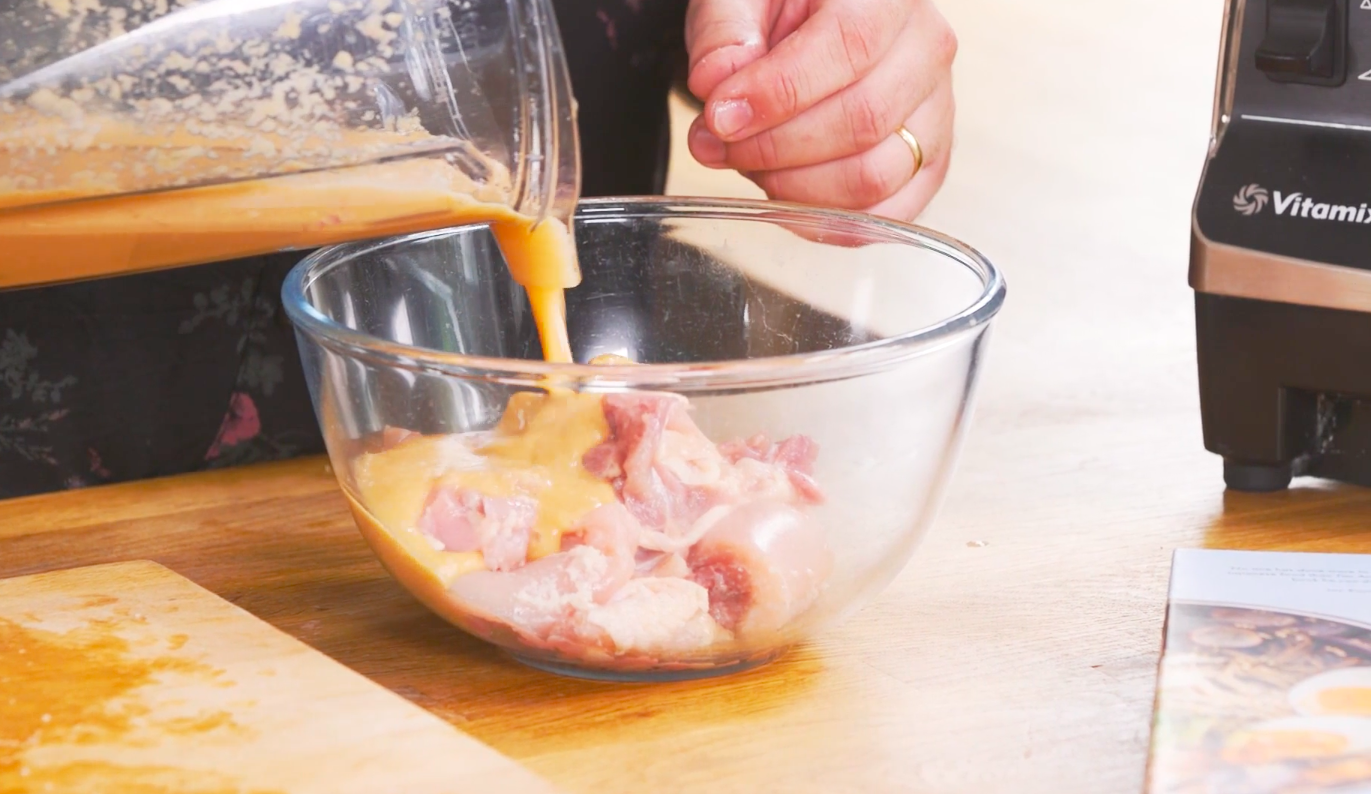
Coat the chicken pieces in the marinade and leave in the fridge for at least an hour and up to 48 hours.
Step 4
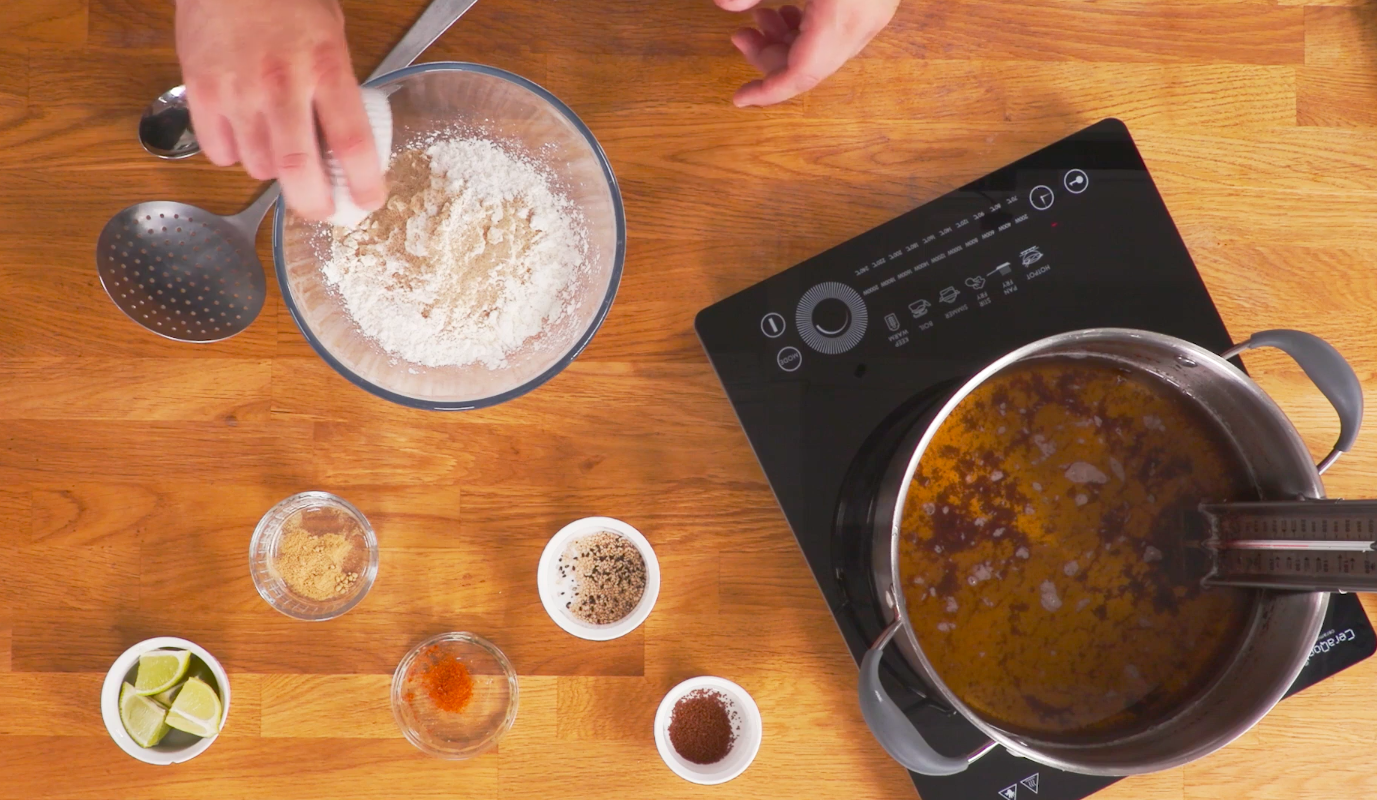
For the seasoned flour, simply combine all ingredients until the seasonings are well distributed.
Step 5
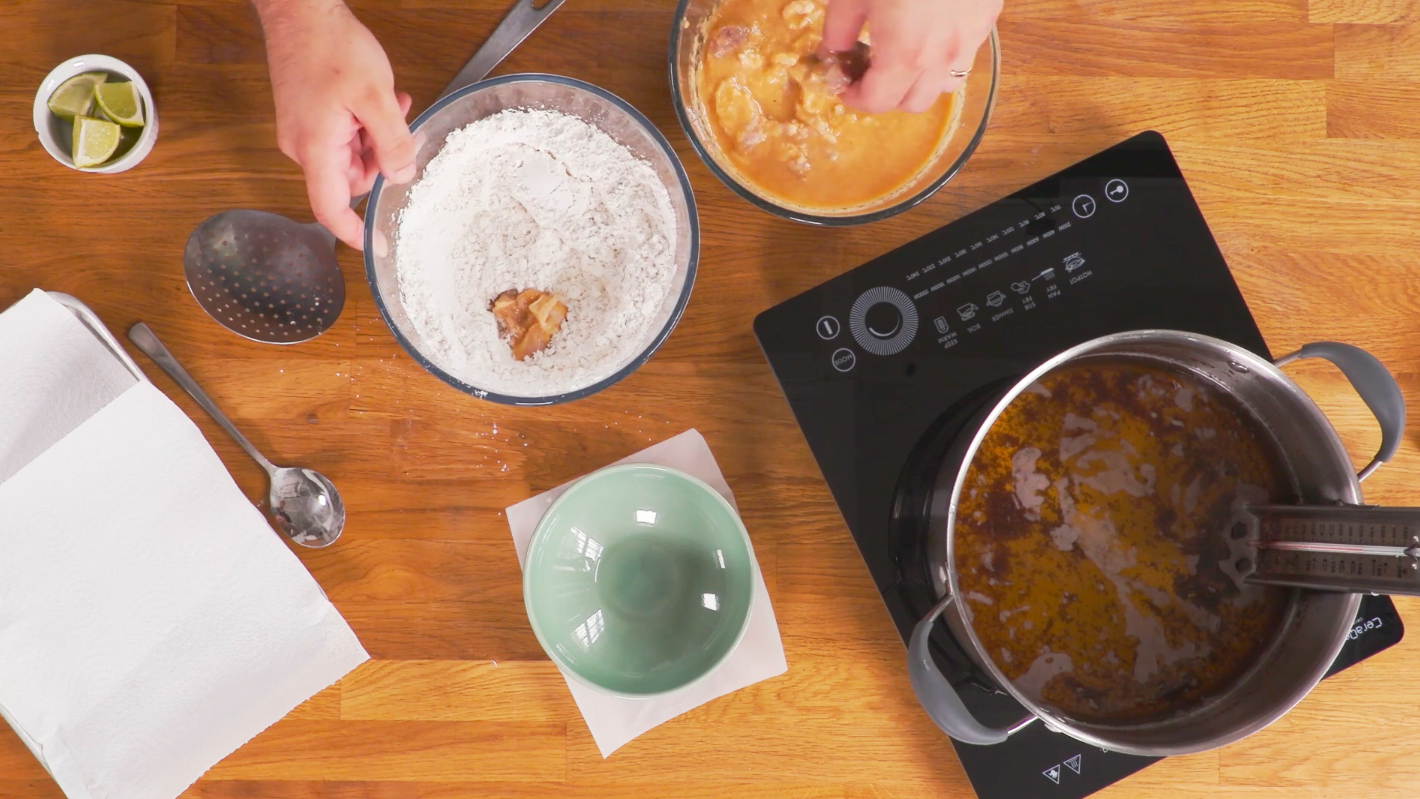
Coat the chicken in the flour mix.
Step 6
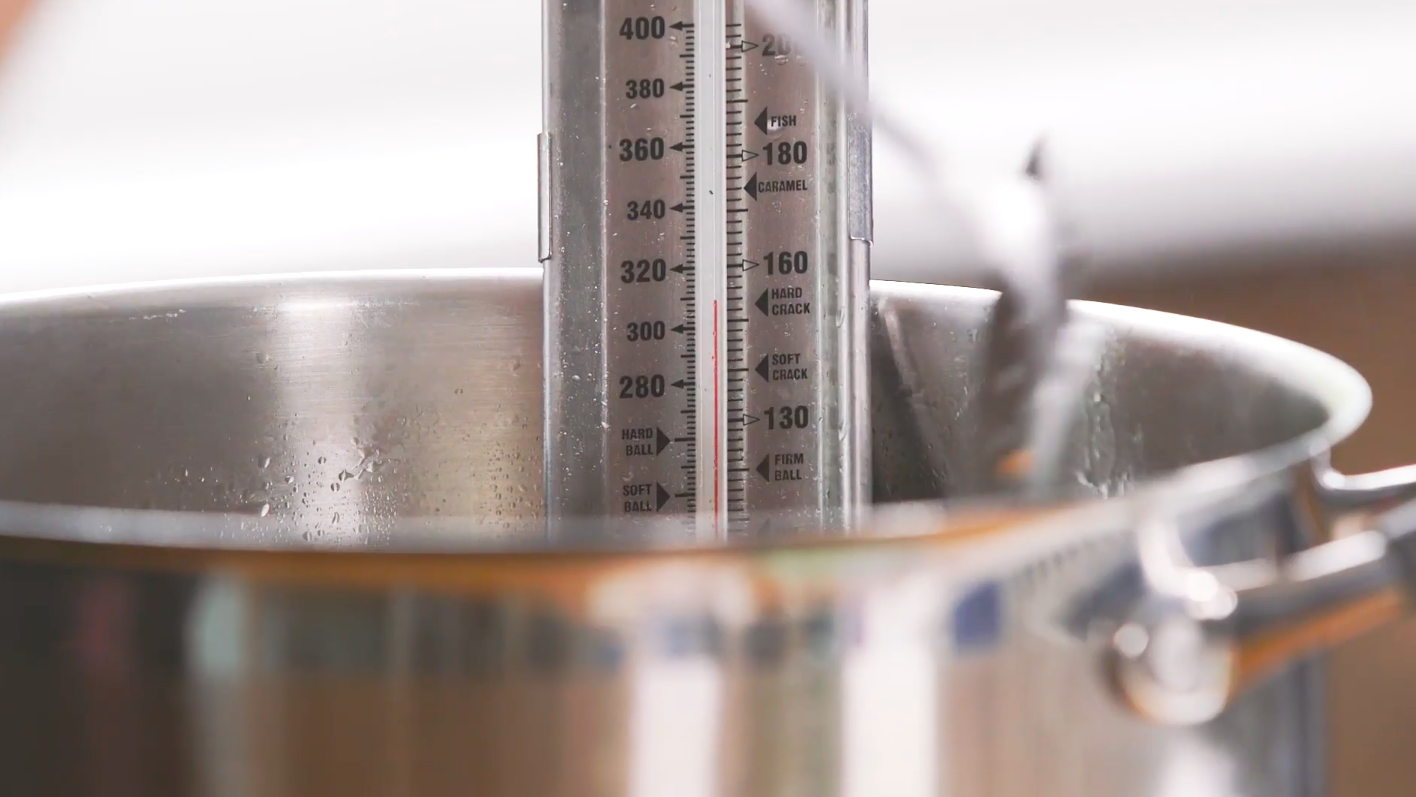
To cook, heat at least 1l oil in a deep saucepan and heat to no higher than 170ºC. Remove the chicken from the marinade, letting any excess drip off, and dredge in the cornflour or seasoned flour, ensuring that all the nooks and crannies are well coated – this will help maximise crust and minimise burning.
Carefully drop the chicken into the oil in small batches, checking the temperature periodically to ensure it is between 160 and 170º, and fry for 6-8 minutes. If you have a meat thermometer, use it: the chicken is done when it reaches an internal temperature of 65ºC.
Step 7
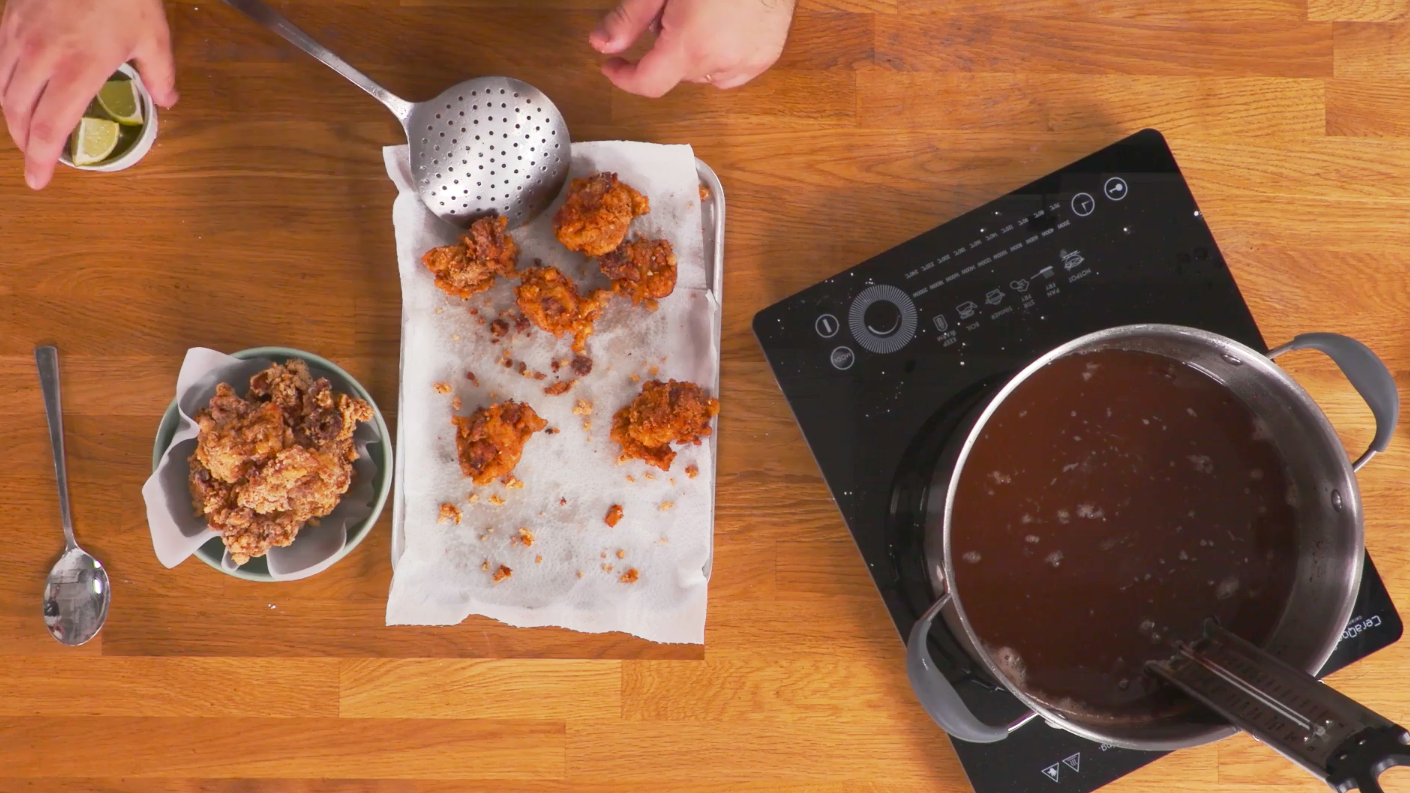
If you don’t have a thermometer, use a knife to cut into the biggest piece of chicken at its thickest point. If it’s pink, back into the oil it goes.
Step 8
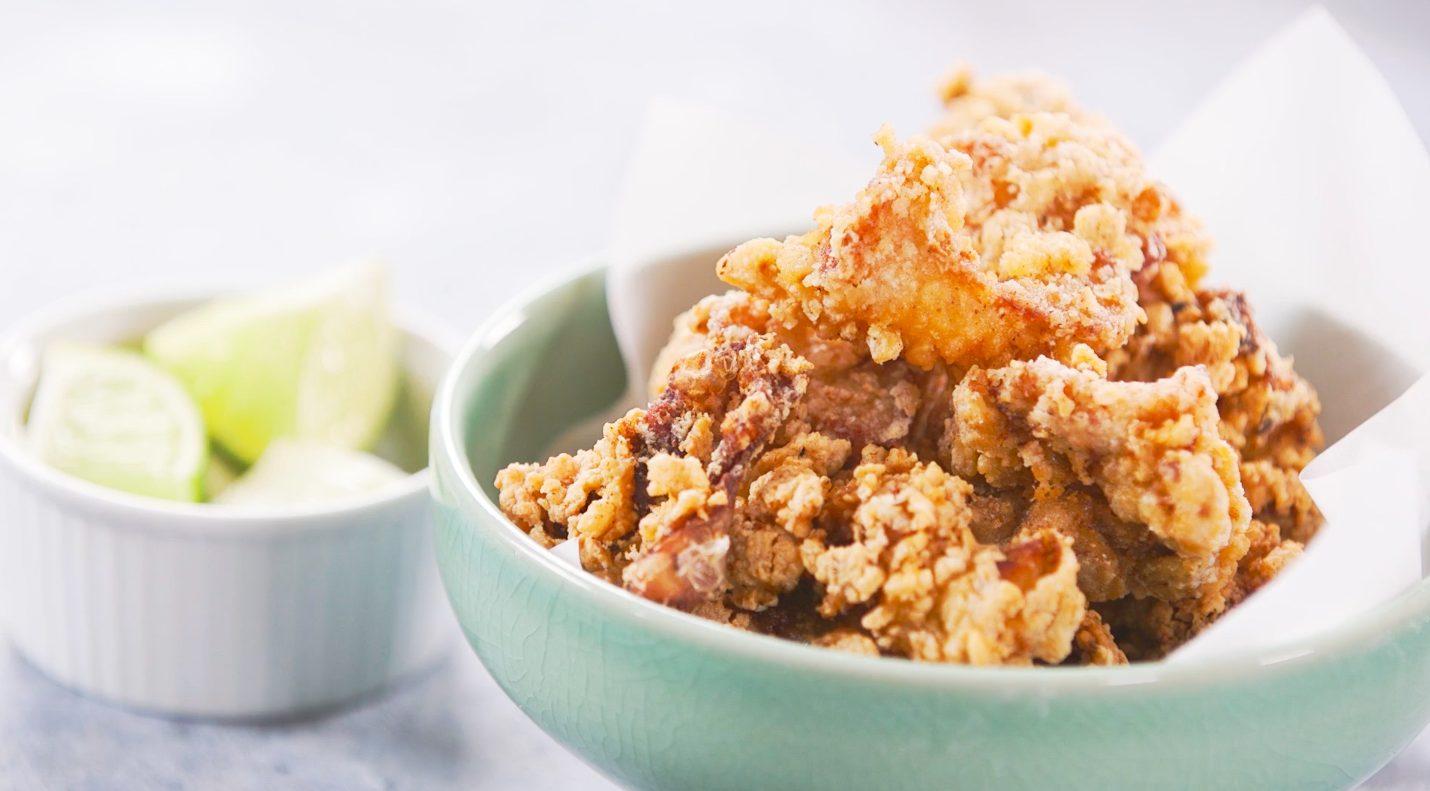
If it’s not pink, it's time to serve your chicken Karaage.
Alternative ways to cook chicken Karaage
How to make chicken Karaage in the oven
If you want to make chicken Karaage without all the oil and deep fat frying, follow these simple steps to cook this wonderful recipe in the oven.
- Prepare your chicken as normal up until it goes into the deep fat fryer.
- Preheat your oven to 220°C.
- Put your chicken pieces onto a baking tray.
- Put in the oven for 20 minutes.
- Remove from the oven and immediately serve with a slice of lime or kewpie mayo.
How to make chicken Karaage in the air fryer
Another option is to make this recipe in everyone’s favourite food gadget: the air fryer. Follow these steps:
- Prepare your chicken as normal up until it goes into the deep fat fryer.
- Preheat your air fryer to 200 °C.
- Place your chicken pieces into your air fryer basket and spray a little bit of oil over them.
- Cook for 10 minutes.
- Take them out and check them by putting a sharp knife through one and pulling it out to see if the knife is hot. If it is hot, your chicken karaage are ready to eat.
- If not give them another 5 minutes.
- Remove from air fryer and serve immediately with a slice of lime or kewpie mayo.
How to store chicken Karaage
Once cooled, store Karaage in the fridge for up to three to four days and freeze for about 4 months. If the fried chicken has been left at room temperature for longer than 2 hours, it will need to be binned according to EatingWell.
Simply just make sure to store your fried chicken is in an airtight container or cover them well with cling film. The more protected they are the better.
How to reheat chicken Karaage
With the help of EatingWell, we have all the solutions for reheating our favourite Japanese recipe.
If you want to reheat your Karaage in the oven, preheat your oven to 200°C and place the pieces on a baking sheet. Bake for around 15-20 minutes, so that they are warm on the inside but crisp on the outside. The exact baking time will depend on the size of your pieces.
If you want to differently do it in an air fryer, preheat your air fryer to 190°C. Place your chicken pieces into your basket and air fry them on each side for 2 minutes. They should be warm on the inside too and crispy on the outside.
If microwave is your preferred option, although it should be noted that it will not bring the crisp back to Karaage, it is still possible. To get the best results, place a paper towel on a microwave safe plate and put the fried chicken on top. Microwave for 30 -second intervals, flipping each side til the chicken has warmed up.
If you reheating your chicken karaage from frozen, the rule is to not let it defrost before cooking. This will cause the chicken to thaw and release moisture and degrade. Instead cook them from frozen by preheating your oven to 190°C. Place the pieces onto a foil-lined baking sheet and bake for 35 minutes until each piece is completely reheated. If you feel some pieces may need longer to get that desired crispy effect, stick them in for a few more minutes.
Our best Japanese chicken recipes
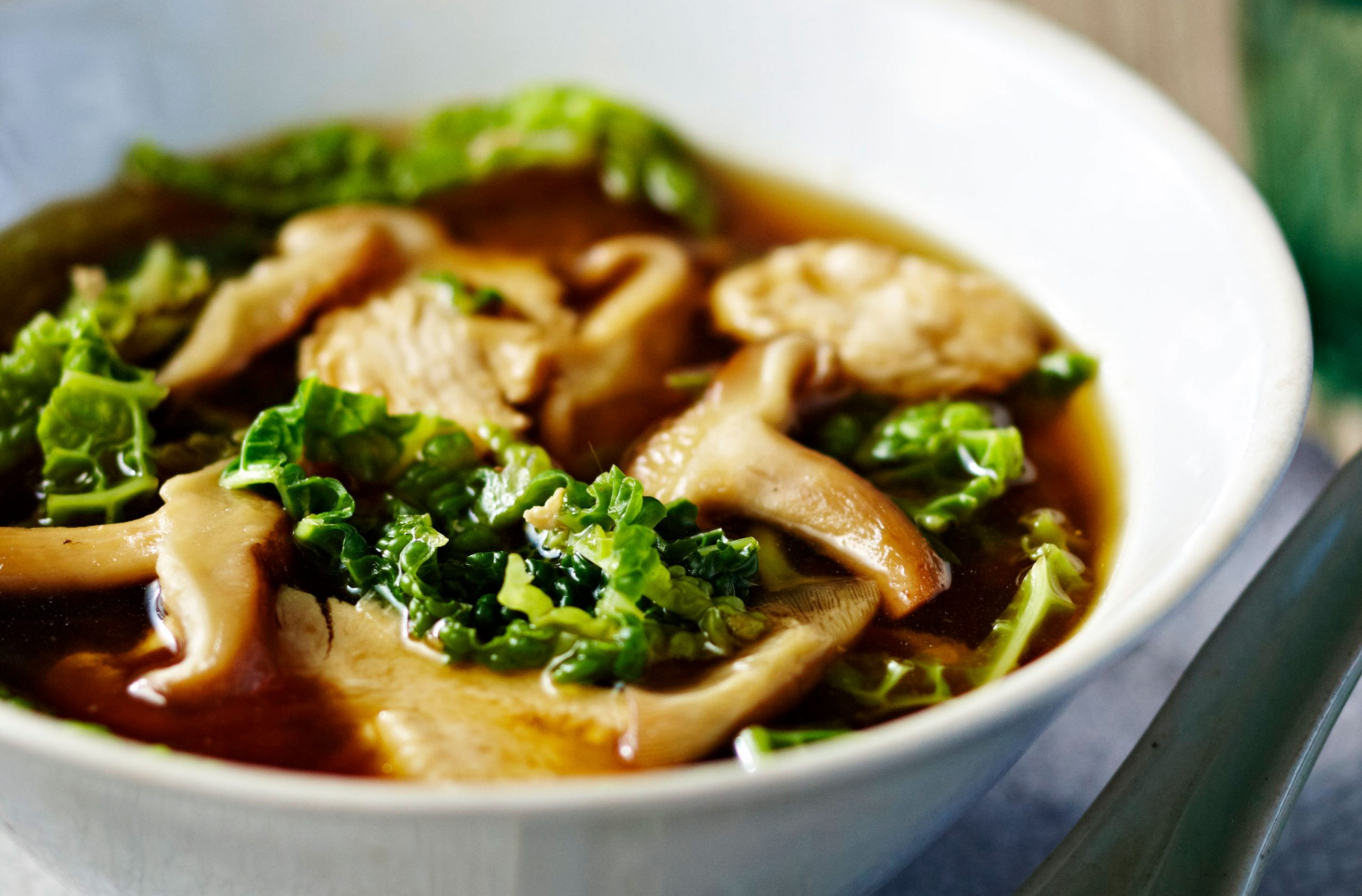
1. Chicken miso soup
This tasty low-calorie soup using Japanese miso is perfect for lunch or a light dinner and is packed with flavour.
Get the recipe: Chicken miso soup
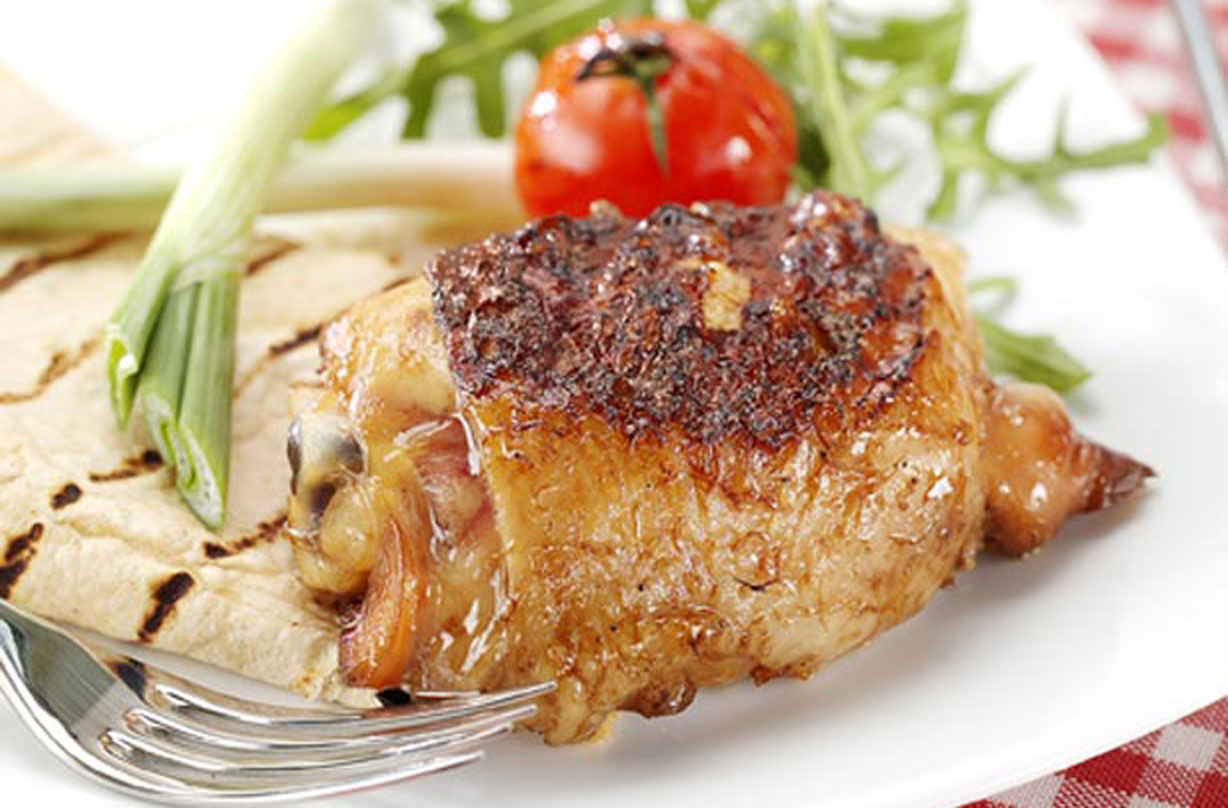
2. Chicken teriyaki thighs
This is a great barbecue showstopper will add a non-traditional Japanese twist to your dinner table.
Get the recipe: Chicken teriyaki thighs
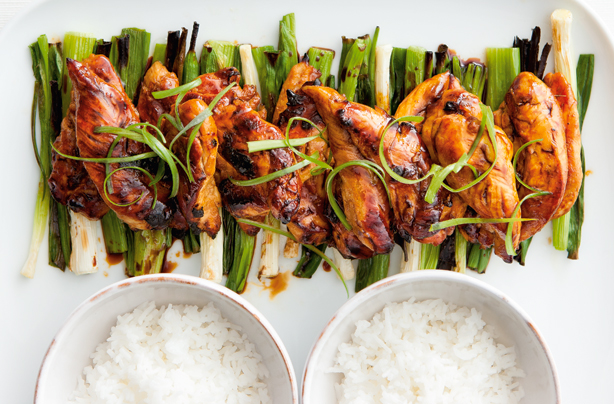
3. Sticky yakitori chicken
This Japanese-style chicken is a tasty dinner that we know everyone will enjoy. Packed with flavour, the chicken is served with delicious soft grilled spring onions and fluffy Basmati rice.
Get the recipe: Sticky yakitori chicken
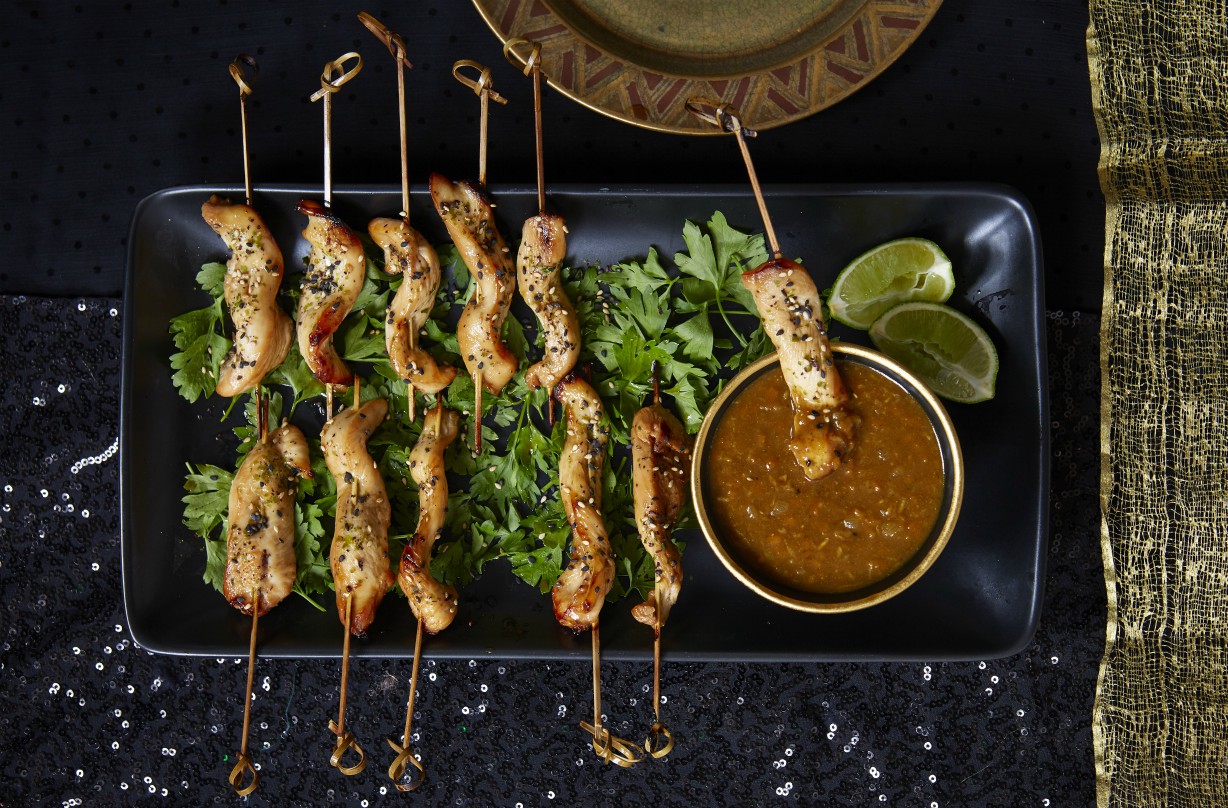
4. Chicken katsu skewers
If you love Wagamama’s chicken katsu curry, you are going to love these skewers. They are the ultimate Japanese sharing dish that makes for great party food.
Get the recipe: Chicken katsu skewers
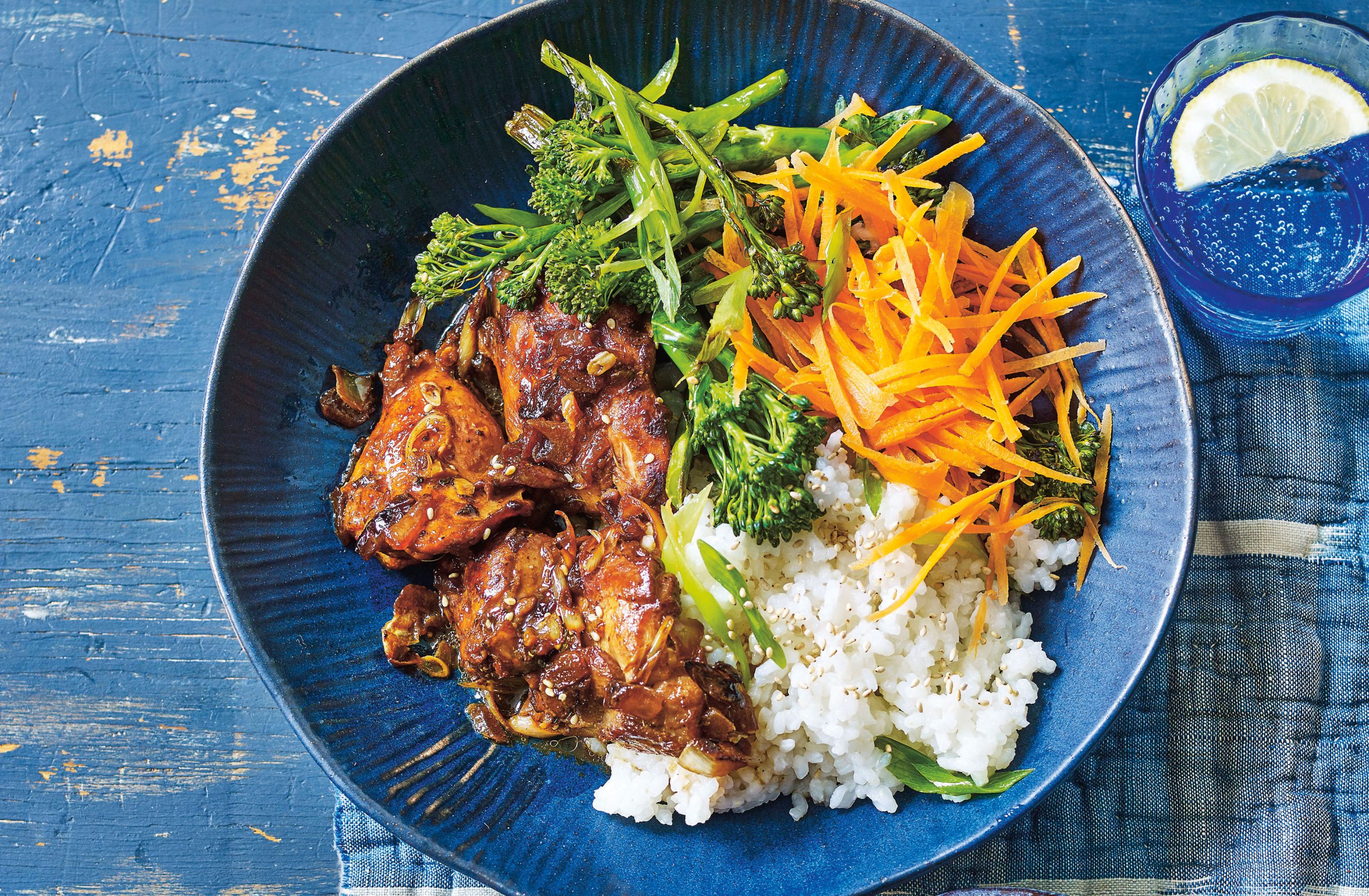
This healthy Japanese meal is full of flavour, super high in nutrients, and easy to make. You can even freeze individual portions of the teriyaki chicken so you can have a healthy lunch or dinner at any time.
Get the recipe: Teriyaki chicken bowl
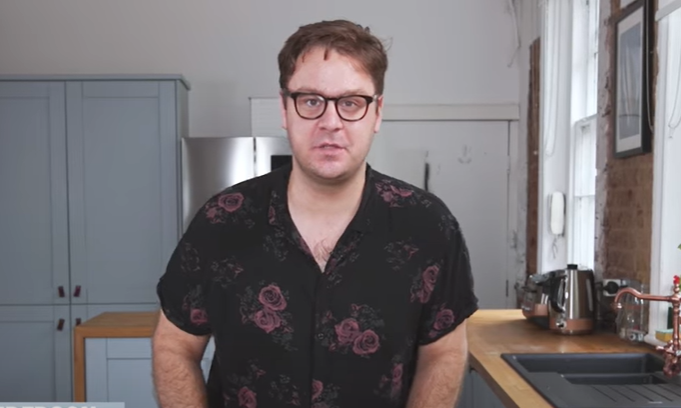
Tim Anderson is an American-British chef, who specialises in Japanese food and gastronomy. Currently executive chef and owner of Nanban, with branches in Brixton and Convent Garden and author of five Japanese cookbooks, his career took off when he won MasterChef in 2011. Since then, he has developed a career as not only a professional chef, but a restaurateur, a writer and radio and TV personality, where he has featured as a panelist on BBC Radio 4 The Kitchen Cabinet, and has contributed to articles in The Guardian, National Geographic Traveller, The Telegraph, Newsweek, and Vittles.
Related features:
How to make Scotch eggs with Tim Anderson
How to make Katsu Sando with Tim Anderson
How to cook Padron peppers with Joe Howley

Christina Geggus is Junior Food Writer at Goodto.com and enjoys writing about lifestyle, food, and recipes. After completing her Master’s in Magazine Journalism at Nottingham Trent University and her undergraduate degree in Communication & Society and Global Studies alongside receiving an NCTJ diploma, Christina has always set her sights on a career in journalism.
- Rosie ConroyFood Writer